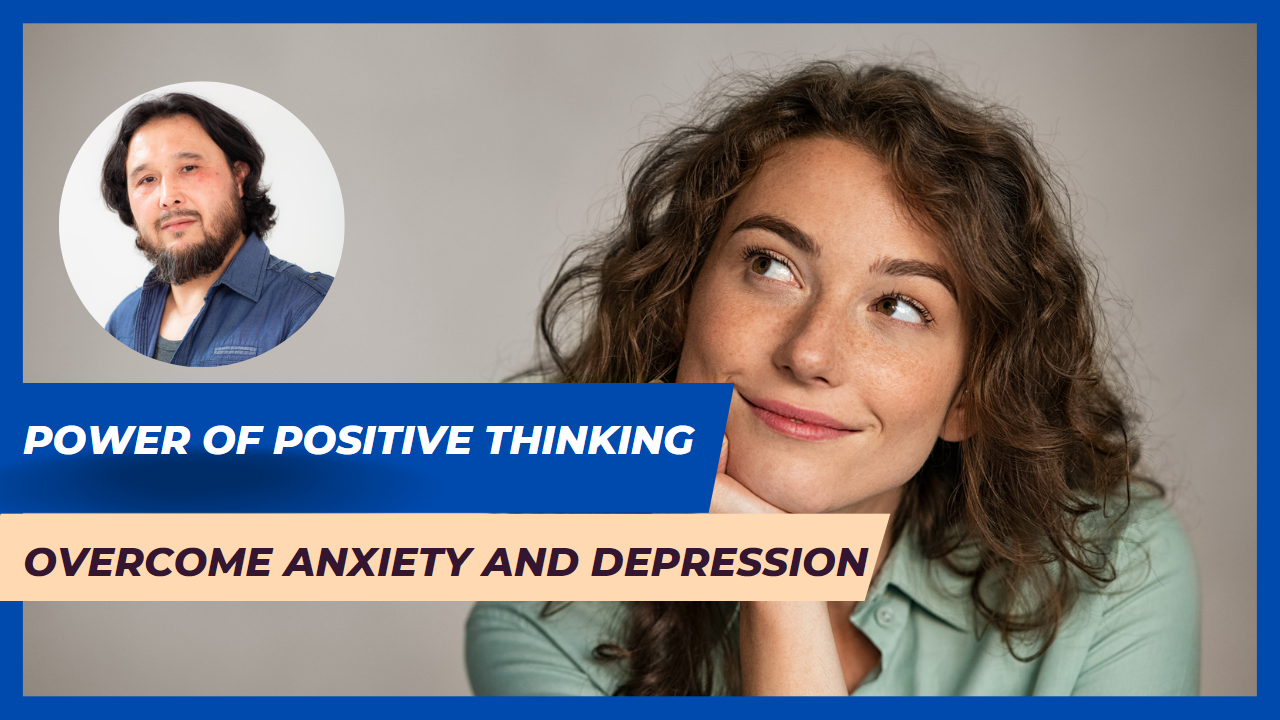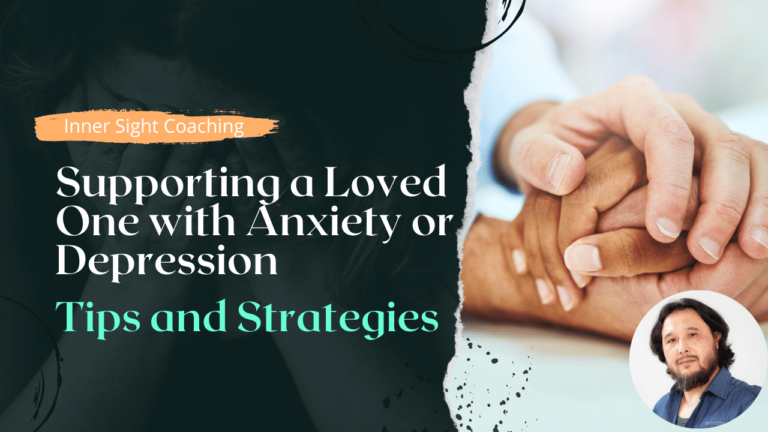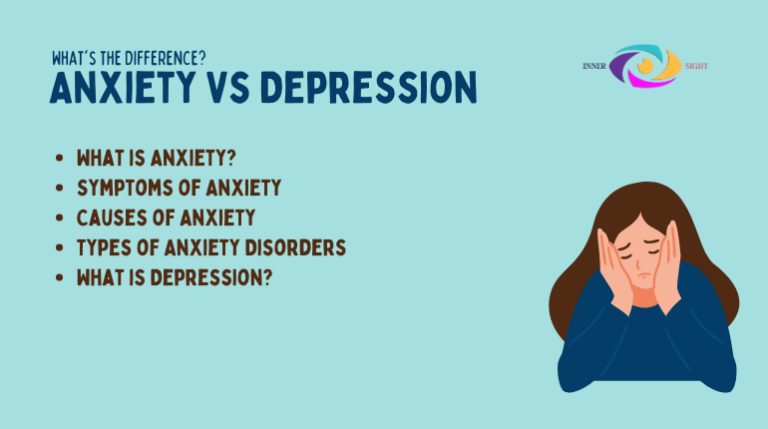The Power of Positive Thinking: How to Use It to Overcome Anxiety and Depression
Anxiety and depression are two common mental health issues that affect millions of people worldwide. These conditions can make it difficult for people to live their lives to the fullest and can cause significant emotional distress. While there are various treatment options available for anxiety and depression, one powerful tool that can help is positive thinking. In this article, we will explore how the power of positive thinking can be used to overcome anxiety and depression.
1. Introduction
Anxiety and depression are two common mental health issues that can be challenging to deal with. They can impact every aspect of a person’s life, including work, relationships, and daily activities. While various treatments are available, one approach that can make a significant difference is positive thinking. Positive thinking has been shown to help reduce anxiety and depression symptoms and improve overall mental well-being.
2. What is Positive Thinking?
Positive thinking refers to the practice of focusing on the positive aspects of a situation rather than dwelling on the negative. It involves intentionally shifting one’s mindset from a negative to a positive perspective. Positive thinking is not about denying negative emotions or pretending that everything is perfect. Instead, it is about actively looking for the good in every situation, no matter how challenging it may be.
3. How Does Positive Thinking Affect Anxiety and Depression?
Positive thinking can have a significant impact on anxiety and depression. When people focus on the positive aspects of their lives, it can help reduce stress and anxiety levels. Positive thinking can also help people reframe negative thoughts and replace them with more positive ones. By doing so, people can experience a boost in their mood and a reduction in depressive symptoms.
4. The Benefits of Positive Thinking
There are many benefits to adopting a positive thinking mindset. Some of these include:
- Improved mental well-being
- Reduced stress and anxiety
- Increased resilience
- Improved self-esteem and confidence
- Improved relationships
- Better coping skills
5. How to Develop a Positive Thinking Mindset
Developing a positive thinking mindset takes practice, but it is achievable. Here are some tips to get started:
Practice gratitude: Take time each day to reflect on the things in your life that you are grateful for. This can help shift your focus from negative to positive.
Surround yourself with positive people: Spend time with people who uplift and encourage you rather than those who bring you down.
Challenge negative thoughts: When negative thoughts arise, challenge them with positive affirmations or facts that contradict them.
Celebrate small victories: Take time to acknowledge and celebrate even the smallest achievements. This can help build momentum and foster a positive outlook.
Reframe negative experiences: Look for the silver lining in difficult situations and focus on what you have learned or gained from them.
6. Positive Affirmations for Anxiety and Depression
Positive affirmations are statements that help promote positive thinking and self-talk. They can be particularly helpful for people with anxiety and depression. Here are some positive affirmations to try:
- I am capable of overcoming my challenges.
- I am worthy of love and respect.
- I am strong and resilient.
- I choose to focus on the positive in my life.
- I am worthy of happiness and joy.
- I trust that everything will work out for the best.
- I am in control of my thoughts and emotions.
- I am grateful for the good things in my life.
7. Gratitude Journaling
Gratitude journaling involves writing down the things in your life that you are grateful for. This practice can help shift your focus from negative to positive and promote feelings of well-being. To get started, set aside a few minutes each day to write down three to five things that you are thankful for. These can be big or small things, such as a supportive friend, a warm cup of tea, or a beautiful sunset.
8. Mindfulness Meditation
Mindfulness meditation involves focusing your attention on the present moment and observing your thoughts and emotions without judgment. This practice can help reduce stress and anxiety and promote feelings of calm and relaxation. To get started with mindfulness meditation, find a quiet place to sit and set a timer for five to ten minutes. Focus on your breath and observe any thoughts or emotions that arise without judgment. If your mind wanders, gently bring it back to your breath.
9. Exercise and Physical Activity
Exercise and physical activity can help reduce anxiety and depression symptoms by releasing feel-good endorphins and promoting feelings of well-being. Aim for at least 30 minutes of physical activity each day, such as walking, jogging, or yoga. Even small amounts of physical activity can have a significant impact on mental well-being.
10. Building a Support System
Building a support system of friends, family, or mental health professionals can provide a valuable source of emotional support and encouragement. Surround yourself with people who uplift and encourage you, and don’t be afraid to ask for help when you need it.
11. Professional Help for Anxiety and Depression
While positive thinking can be a powerful tool for managing anxiety and depression, it is not a substitute for professional help. If you are struggling with anxiety or depression, it is essential to seek the help of a mental health professional who can provide you with the tools and support you need to manage your symptoms effectively.
12. Maintaining a Positive Attitude
Maintaining a positive attitude is an ongoing practice. It requires effort and intentionality but can have a significant impact on mental well-being. Remember to focus on the positive, challenge negative thoughts, and surround yourself with positive people and experiences.
13. Common Roadblocks to Positive Thinking
There are many common roadblocks to positive thinking, such as self-doubt, negative self-talk, and fear of failure. It is essential to recognize these roadblocks and challenge them with positive affirmations, gratitude, and mindfulness practices.
14. Conclusion
Positive thinking can be a powerful tool for managing anxiety and depression. By intentionally shifting your mindset from negative to positive, you can improve your mental well-being and reduce symptoms of anxiety and depression. Remember to practice gratitude, surround yourself with positive people, challenge negative thoughts, and seek the help of a mental health professional when needed.
15. Contact Us
Finding the right life coach for you
Finding the right life coach for you is important. Look for a coach who specializes in anxiety and depression, has a proven track record of success, and whose coaching style aligns with your needs and preferences.
Let Us Help You
At Inner Sight, we provide life coaching services to help individuals achieve their goals, improve their mental health, and overcome challenges such as anxiety and depression. Our experienced coaches have helped many clients find success and we would love to help you too.
Contact Information
Phone: 1300 944 994
Email: contact@innersightcoach.com
Address: PO Box 34, Chester Hill, NSW 2162
Schedule a Free Consultation
If you’re interested in learning more about our services or would like to schedule a free consultation, please fill out the contact form. We will get back to you as soon as possible to discuss how we can help you achieve your goals and improve your quality of life.
Let’s Connect
Thank you for considering Inner Sight Coaching for your life coaching needs. We look forward to helping you achieve your goals and improve your quality of life.
16. FAQs
While positive thinking can be a powerful tool for managing anxiety and depression, it is not a cure. It is essential to seek the help of a mental health professional for effective treatment.
No, positive thinking is not about denying negative emotions or pretending that everything is perfect. It is about intentionally shifting your mindset from negative to positive and focusing on the good in every situation.
No, positive thinking cannot make you immune to stress. However, it can help you manage stress better by promoting feelings of calm and relaxation.
While positive thinking is not a cure for physical health issues, it can have a positive impact on overall well-being and promote feelings of positivity and hope.
The benefits of positive thinking can vary from person to person. Some people may see immediate benefits, while others may take longer to see results. It is important to be patient and persistent in practicing positive thinking to see lasting benefits.







